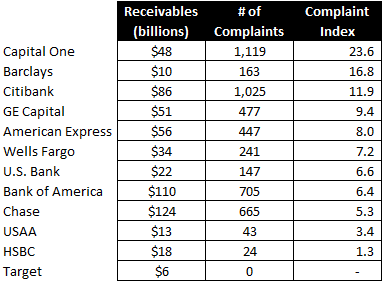FIRST THINGS FIRST: Frequent Miler has the 45 BEST USES FOR ULTIMATE REWARD POINTS, and it’s hard for me to imagine how any blogger can top that, so there you go. Oh, and for anybody who’s interested here’s 50 GB of free cloud storage and free pizza at Papa John’s.
DAMN ROBOTS: I’m going to write about robots today. Which may not seem like a great topic for a site called “Personal Finance Digest”, but bear with me. I’m going somewhere with this.
Are robots taking our jobs and messing with your career aspirations? Two MIT economists, Erik Brynjolfsson and Andrew McAfee, say yes:
Perhaps the most damning piece of evidence, according to Brynjolfsson, is a chart that only an economist could love. In economics, productivity—the amount of economic value created for a given unit of input, such as an hour of labor—is a crucial indicator of growth and wealth creation. It is a measure of progress. On the chart Brynjolfsson likes to show, separate lines represent productivity and total employment in the United States.
For years after World War II, the two lines closely tracked each other, with increases in jobs corresponding to increases in productivity. The pattern is clear: as businesses generated more value from their workers, the country as a whole became richer, which fueled more economic activity and created even more jobs. Then, beginning in 2000, the lines diverge; productivity continues to rise robustly, but employment suddenly wilts. By 2011, a significant gap appears between the two lines, showing economic growth with no parallel increase in job creation. Brynjolfsson and McAfee call it the “great decoupling.” And Brynjolfsson says he is confident that technology is behind both the healthy growth in productivity and the weak growth in jobs.
It’s a startling assertion because it threatens the faith that many economists place in technological progress. Brynjolfsson and McAfee still believe that technology boosts productivity and makes societies wealthier, but they think that it can also have a dark side: technological progress is eliminating the need for many types of jobs and leaving the typical worker worse off than before.
Brynjolfsson can point to a second chart indicating that median income is failing to rise even as the gross domestic product soars. “It’s the great paradox of our era,” he says. “Productivity is at record levels, innovation has never been faster, and yet at the same time, we have a falling median income and we have fewer jobs. People are falling behind because technology is advancing so fast and our skills and organizations aren’t keeping up.”
It’s not just the Luddites who are concerned about this. The term “Luddite” has a pejorative connotation and is used to describe somebody with a possibly irrational dislike of technology. The original Luddites were a group in England two centuries ago, apparently named after a man named Ned Ludd, who protested against labor-saving textile machinery on account of it taking away jobs.
Obviously, we’ve managed to create plenty of new jobs since then, so though the Luddites may have been right about their specific jobs being lost on account of those new-fangled looms, they were more generally wrong about whether technological progress was a social good.
There are always winners and losers from large-scale changes. John Mauldin, in response to the question of “Where will the jobs come from?” responds, “I don’t know, but they will.”
And thus far the new jobs have always come. What has people worried now is that these robots are getting awfully smart. Skynet isn’t self-aware yet, but when people can write credibly about the robot middle class, big things are going on.
It’s not just the blue-collar jobs, either:
Countless traditional white-collar jobs, such as many in the post office and in customer service, have disappeared. W. Brian Arthur, a visiting researcher at the Xerox Palo Alto Research Center’s intelligence systems lab and a former economics professor at Stanford University, calls it the “autonomous economy.” It’s far more subtle than the idea of robots and automation doing human jobs, he says: it involves “digital processes talking to other digital processes and creating new processes,” enabling us to do many things with fewer people and making yet other human jobs obsolete.
Nobody knows what’s going to happen, least of all me, but it’s certainly something worth thinking about as you plot your career for the next few decades. The trend over the past decade or two has been for people on the right tail of the bell curve to make out very well, so you may as well try to figure out how to position yourself there.
There’s a fun thread on Fatwallet about how to get to a $100K salary. One common piece of advice: make friends. Get to know people. I’ll certainly vouch for that. Most of the jobs I’ve had since graduating college came from knowing somebody.
So if you’re in college, go to plenty of parties and get to know as many people as you can. Grades? Pfft, nobody cares. (Unless you’re planning on law school, med school, or a PhD program, of course.) Also, you might want to think twice about majoring in business, as business majors are the most under-employed of all majors–more so than English majors!
If I may go off on a tangent, the lack of white-collar input into certain areas of the financial system is the raison d’être of much of the travel-hacking / gaming-the-system fun to be had on sites like Fatwallet and Flyertalk. Things like awesome credit card bonuses that you can keep getting over and over are made possible by the fact that it is possible to apply for a credit card, be approved, get the card mailed to you, and activate it without a single human being at the bank ever thinking about it.
I, for one, welcome our new robot overlords. Unless I get laid off.
Have a great weekend!






Recent Comments